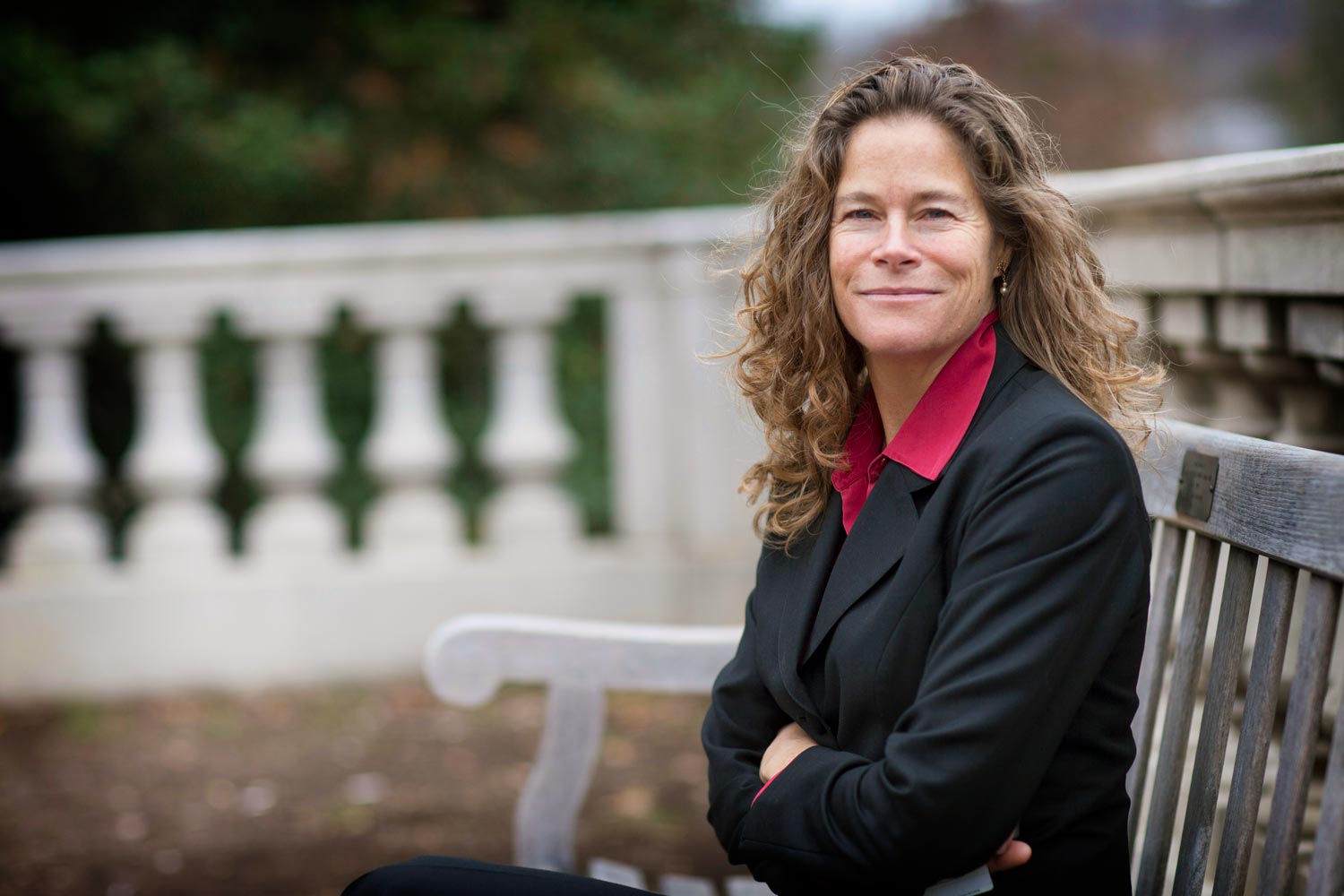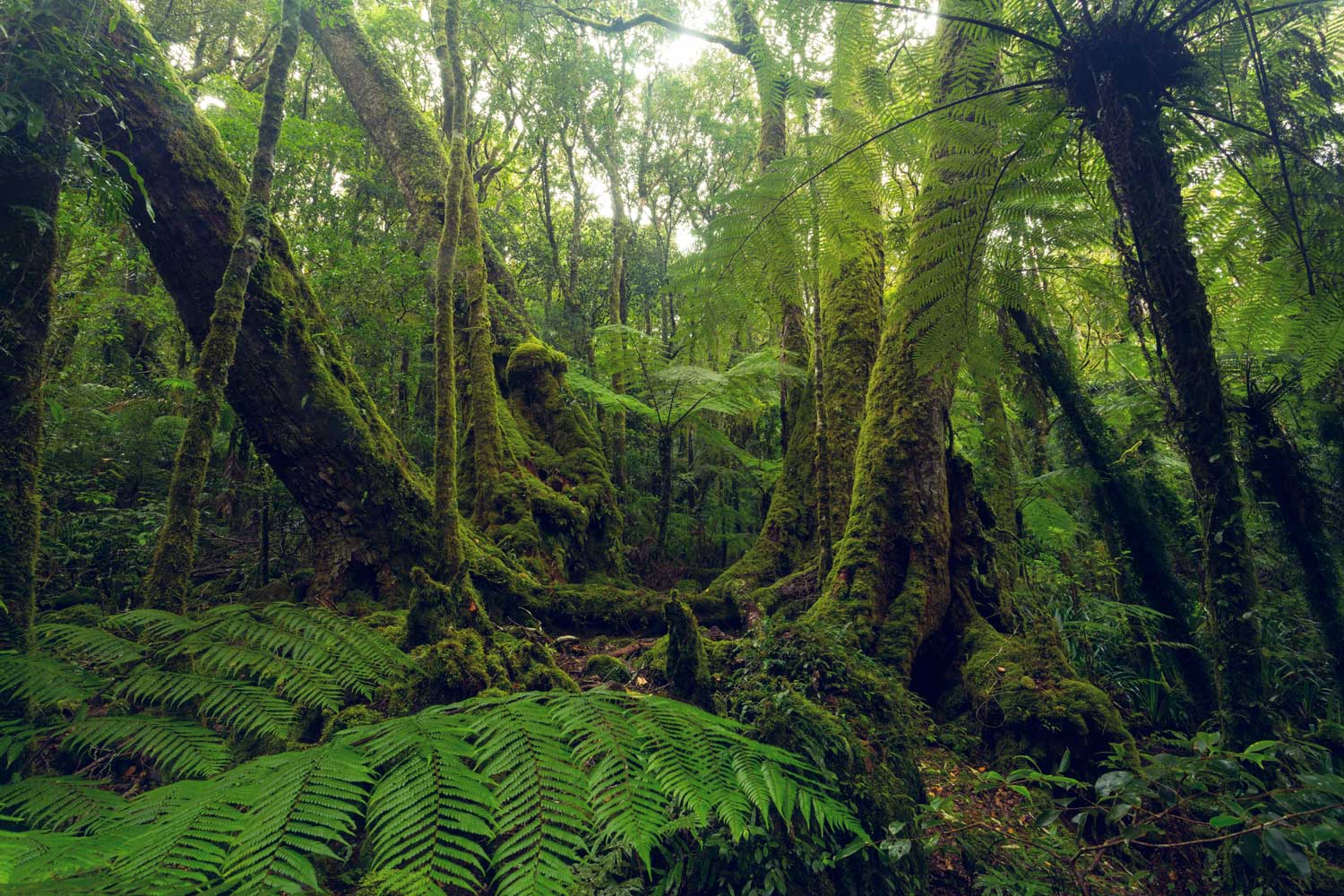The Leonardo DiCaprio Foundation tapped University of Virginia climate change expert Deborah Lawrence to write about the crucial importance of forests, just ahead of the United Nations’ landmark report on the dire situation the Earth is facing due to rising temperatures.
The world’s top scientific body studying climate change said Monday that nations will need to take “unprecedented” steps to stem rising temperatures that, if unchecked, would create dangerous rising seas, food shortages, wildfires and the mass destruction of coral reefs by 2040 – years earlier than had previously been forecast.
The mission of the DiCaprio Foundation, founded in 1998, is to ensure the well-being of all Earth’s inhabitants. Lawrence, a professor of environmental sciences, connected with the foundation in November 2017 at the U.N.’s Climate Change Conference in Bonn, Germany. She’d just spoken about the importance of forests in keeping the Earth cool when she caught the attention of Karl Burkart, the foundation’s director of innovation, media and technology.

Deborah Lawrence directs UVA’s inaugural Global Research Program of Distinction in Food, Fuel and Forests. (Photo by Dan Addison, University Communications)
“We talked, and I really pushed to enhance the profile of forests on the Leonardo DiCaprio Foundation,” she said.
Fast forward to Oct. 4, when Lawrence and 39 other leading scientists published “Five Reasons the Earth’s Climate Depends on Forests” on the website of Climate and Land Use Alliance. Once again, Burkart’s interest was piqued and he reached out to Lawrence to pen a piece for the DiCaprio Foundation.
Her article, “Deforestation is Tearing Through Our Carbon Budget,” appeared Sunday evening on the foundation’s news homepage, just ahead of the media coverage avalanche in response to the U.N.’s alarming report.
Talking with UVA Today, Lawrence likened forests to giant air conditioners.
“Forests, especially tropical forests, cool the atmosphere because they move a lot of water,” she said. “This process cools the air over the tropical rainforest, over the entire tropics, and it actually contributes to cooling the planet. So it’s like a giant air conditioner.”
What happens if the world cannot do what it takes to slow global warming? “We are heading toward a three-degree Celsius warming [above preindustrial levels]. I can’t even tell you how incredibly dangerous that would be.”
In the grand scheme of things, an increase of that size may not sound alarming, but Lawrence, who is focusing new research on how to convey the seriousness of global warming, said it should. “When I tell you that Charlottesville, which now has 30 days above 90 degrees Fahrenheit in the summer, will have 90 or 95 days over 90 degrees in the summer, that is really different,” she said.
Lawrence pointed to September’s Hurricane Florence, which caused catastrophic damage in the Carolinas. This was “about a one-in-a-thousand-year event,” she said. “But that’s only one-in-a-thousand because we are looking backward. In the future, it could be one-in-100 or one-in-50. That’s a big change in the frequency.”
She said there will be more tropical storms, and they will be longer and will dump more rain. How will our storm drains deal with that? How will our rivers deal with that? “Will we be able to get to work? How often will we be stuck with the school buses not able to pick up our children?” she asked. “Yeah, it’s going to be disruptive.”
One can also look to Lawrence’s recent research about temperature rise in Africa’s Great Lakes region for another glimpse of what the future may hold if nations do not act quickly to slow rising temperatures. While temperatures will rise across the continent, portions of Kenya, Uganda and the Democratic Republic of Congo will be especially hard-hit between now and the end of the 21st century.
Lawrence’s research found that between 1979 and 2012, countries like Uganda and Kenya had between 19 and 23 days a year where the temperatures reached beyond 102 degrees Fahrenheit. Her projections show that in the second half of this century, Uganda will have 127 days a year in that temperature range. The Democratic Republic of Congo will have an astonishing 156 days a year in the 102-degree range. The country only had five days in that range in the 2010 era.
“It’s just like they don’t even see it coming,” Lawrence said.
“Their economy is based on agriculture, and they cannot work outside because it’s so hot and the plants won’t grow,” she said. “It’s not just that agriculture will suffer, it’s that people won’t want to live there. So where are they going to go? We already don’t like migration; what’s going to happen when we have more migrants?”
Lawrence is hoping this new publicity about forests will inspire countries to see their value to the world’s health. “They take out a quarter of all the CO2 that we’ve put into the atmosphere,” she said. “That’s a huge thing.”
Lawrence said she thinks the Leonardo DiCaprio Foundation is “doing a great job to highlight climate change. They produce their own films; their own shows.
“They are really getting people interested in conservation broadly and in climate change in particular,” she said. “I like it when people who are really famous use their platform to advocate for important change.”
Media Contact
Article Information
October 9, 2018
/content/leonardo-dicaprios-foundation-lends-platform-megaphone-uva-climate-expert

